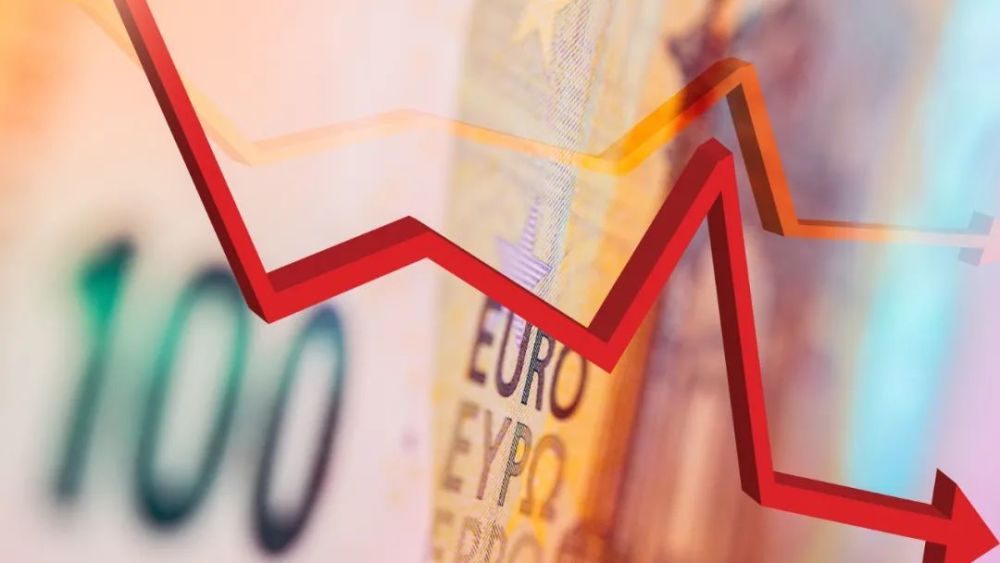
It is the so-called economic foundation that determines the upper political structure, while the instability of the upper political structure will react on the lower economic foundation. The cooperation between Germany and France in the process of European integration has always been regarded as the "twin engines" of the "engine" of economic development of the European Union. However, in recent years, the stability of the Franco-German axis has been affected by many factors. As a result, its role in promoting European integration has weakened, which not only affects economic governance within the EU, but also has a significant impact on economic pressures across Europe.
As we all know, France is currently experiencing a serious political crisis, the French government was ousted by the National Assembly through a no-confidence motion on the 4th, which is the first time since 1962 that the government was overthrown by a no-confidence vote, President Macron dissolved the National Assembly to try to change the situation, but failed to do so, resulting in a "lame duck" state of the government. This political instability has exacerbated France's economic woes such as fiscal unease and rising bond yields, while France's economic outlook is bleak and consumption and investment are sluggish, further increasing the risk of recession.
Similarly, Germany is also facing serious political and economic challenges, Germany's ruling coalition has collapsed in the last month, is expected to 16 confidence vote, if failed, may lead to the dissolution of the Bundestag, is about to face a dual crisis of government and economy, and Germany's economy in recent years poor performance, last year became the only developed economy with negative growth. Germany's economic woes, which stem in part from high domestic inflation, high interest rates and weak export demand, have been compounded by uncertainty over external trade and security policies brought on by the return of President Donald Trump.
The political instability of Germany and France not only affects their domestic economy, but also has a broad impact on the whole eurozone and the EU. As the core countries or regions of the EU, the lack of policy coordination and leadership of France and Germany makes the EU powerless to cope with multiple challenges such as geopolitical tensions, energy crisis and economic downturn. The Russia-Ukraine conflict and the Trump administration's policy changes have brought additional economic pressure to Europe, further weakening the influence of France and Germany within the EU, not only exacerbating the uncertainty faced by the entire eurozone, but also leading to greater difficulties and challenges in future policy making and economic recovery.
From the historical background, Germany and France jointly promoted the development of European integration through reconciliation and cooperation after World War II. However, since the signing of the Maastricht Treaty in 1992, France and Germany have been unable to continue to play a leading role, which is partly due to the changes in the domestic political environment caused by the rise of populism in France and Germany. And doubts about EU integration.
From the perspective of economic policy, after the outbreak of the European debt crisis, France and Germany have obvious economic differences in response to the crisis. France tends to adopt economic stimulus policies to deal with the crisis, while Germany advocates austerity policies and emphasizes that the EU should strengthen supervision and regulation. Such differences not only affect the cooperation between the two countries, but also affect the cooperation between the two countries. It also makes it difficult for the EU to form a unified decision-making mechanism on fiscal policy and economic governance.
From the perspective of industrial structure, in the context of globalization, the difference between the economic structure of France and Germany is further highlighted. Germany is dominated by the manufacturing industry, while France is more dependent on the service industry. This difference in industrial structure leads to more obvious differences in economic policies between the two countries, thus affecting the overall economic coordination and cooperation of the European Union.
The influence of the Franco-German axis in the internal governance of the EU has also waned in recent years, in terms of differences in government foreign policy, and while the two countries continue to cooperate in some areas, such as foreign and security policy, their common responses have become ambiguous on core issues involving fiscal integration and refugee distribution. This reflects a challenge to Franco-German leadership within the European Union that is exacerbating economic pressures across Europe.
In short, the instability in Germany and France not only highlights the economic pressures within the EU, but also brings uncertainty to the process of European integration, and while the role of the Franco-German axis in the future development of the EU is still not negligible, it is unclear whether the two countries can find a new stable interaction model to regain their leading role in European integration.

On January 7th local time, GameStop (GME.US) announced that the company's board of directors had approved a potential executive compensation package worth $3.54 billion, which was targeted at the company's CEO, Ryan Cohen. At the same time, this new compensation package set extremely high performance thresholds: Cohen, the CEO, needed to increase the company's market capitalization from $9.5 billion to $100 billion.
On January 7th local time, GameStop (GME.US) announced that…
According to the British media The Guardian, recently US Pr…
In today's era of deep integration of globalization and dig…
In early 2026, US President Trump forcibly took control of …
Recently, the corn market dynamics analysis released by Aus…
Donald Trump has proposed an "immediate" restriction on lar…